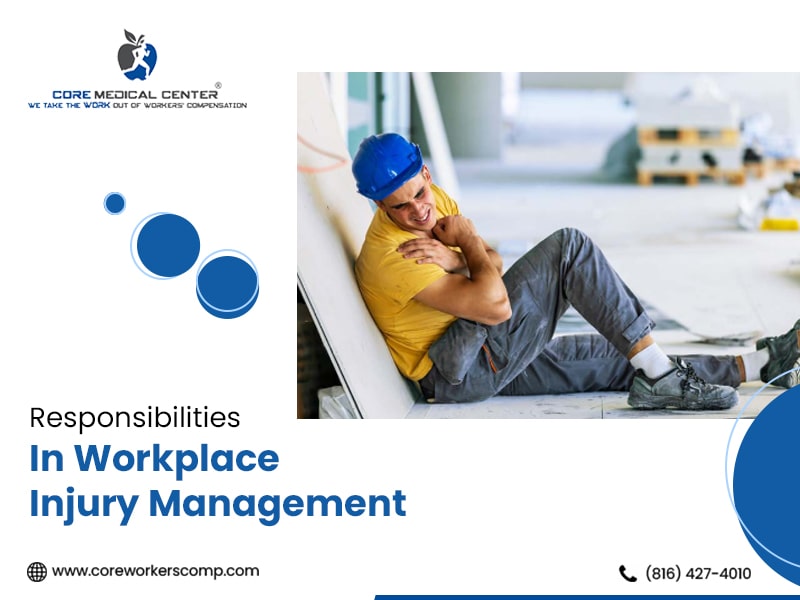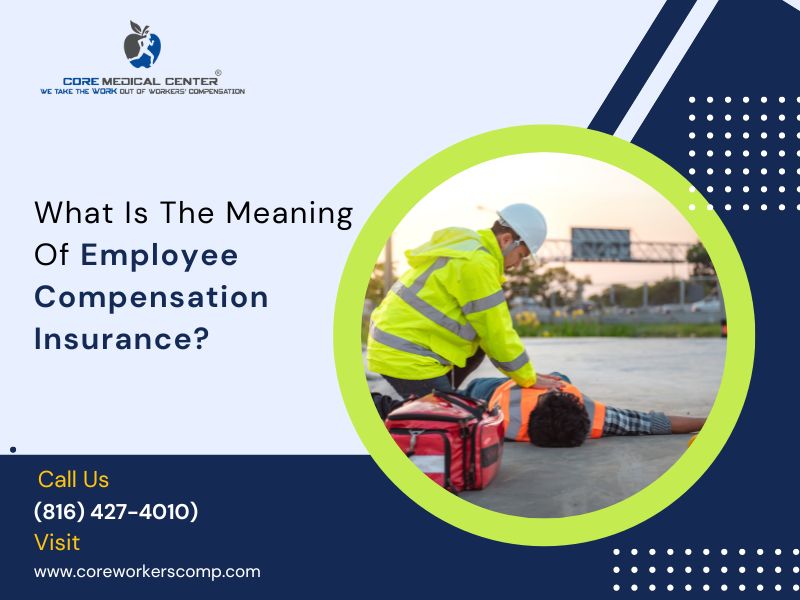Unfortunate incidents like workplace injuries can reduce output, jeopardize employee wellbeing, and cost companies money. As a result, employers, employees, and other pertinent stakeholders must all share responsibility for successful workplace injury management. It is essential to comprehend and carry out these duties to encourage a secure and encouraging work atmosphere. Let’s examine the main duties involved in managing workplace injuries. If you are for Workplace Injury Management Blue Springs, contact Core Medical Center.
You can also get top-notch services and care in Workplace Injury Prevention. Even if you opt for Workers’ Compensation Claims Blue Springs, you can get help from us.
Let’s delve into the discussion:-
- Employer Responsibilities
- Employee Responsibilities
Employer Responsibilities:
The onus of safeguarding the health and safety of their workforce is primarily on the employers.
It calls for several important tasks:-
Provide a Safe Work Environment:
To reduce risks, employers must evaluate workplace dangers and implement the necessary safety measures. These measures include routine inspections, keeping up with equipment maintenance, and following safety procedures.
Training and Education:
Employers should thoroughly instruct staff members on hazard identification, safe equipment use, and safety protocols. These procedures can be reinforced through frequent safety meetings and refresher training.
Injury Reporting and Investigation:
Employers must set up explicit protocols for quickly reporting injuries sustained on the job. In-depth investigations should also be carried out to identify the underlying causes of occurrences and implement preventative measures.
Access to Healthcare:
Employers are responsible for ensuring injured workers receive the proper medical care and attention as soon as possible. It could entail arranging referrals to outside healthcare providers or granting access to on-site medical services.
Workers’ Compensation:
Workers’ compensation insurance, which pays for medical costs and lost income for employees hurt at work, is normally mandated by law for employers. Respecting pertinent regulations and assisting staff members during the claims procedure is essential.
Employee Responsibilities:
Employees have duties to uphold in addition to employers’ significant role in workplace safety:-
Adherence to Safety rules:
Workers must become acquainted with and actively follow the rules and procedures about workplace safety. It includes donning personal protective equipment (PPE), adhering to set procedures, and promptly reporting hazards.
Proactive Hazard Reporting:
Workers should actively seek out risks and notify managers of any safety issues. By reporting incidents on time, everyone can work in a safer environment and reduce the risk of accidents.
Participation in Training:
Workers should actively participate in safety training sessions and ask questions when they have doubts. Being aware of and obedient to safety regulations, they can contribute to reducing workplace accidents and injuries.
Collaboration During Investigations:
In the event of an injury, workers must provide their employer’s or the appropriate authorities’ inquiries with their whole cooperation. Giving precise information can make it easier to put remedial measures in place to stop recurring events.
Active Recovery Participation:
Employees who have been injured should take an active role in their rehabilitation, heeding advice from medical professionals and participating in approved rehabilitation plans. A seamless return to work depends on open communication with employers about their progress and any work constraints.
Conclusion
Employers and employees must work together to effectively control workplace injuries, each carrying out their obligations. Organizations may make workplaces safer and more productive for all parties involved by prioritizing safety, encouraging a culture of prevention, and helping injured workers get well. By working together, we can reduce workplace accidents and enhance worker wellbeing. If you are for Workplace Injury Management Blue Springs, contact Core Medical Center. Here you can get top-notch services and care in Workplace Injury Prevention also. Even if you opt for Workers’ Compensation Claims Blue Springs, you can get our help.




Recent Comments